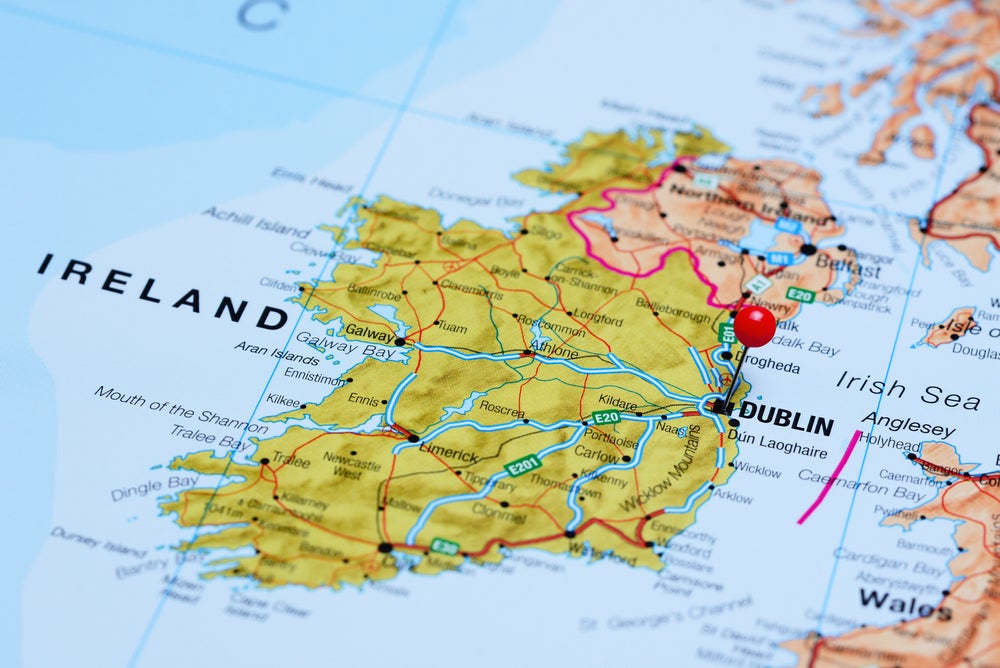
Perception is something that has defined the image of the local economy in Northern Ireland, and also affects business in the province. However, what’s more important is to have a broader overall understanding of the reality, writes Stephen Dawson, head of financial services at Shoosmiths
A broad range of factors determine the local economy in Northern Ireland, including geography and its relationship with its neighbours; it forms part of the UK and also shares a barely noticeable border with the Republic of Ireland. From a legal perspective, Northern Ireland also has a distinct legal jurisdiction, although there are low levels of variance with England and Wales in terms of the rules and governance involved in simply doing business.
I have spent nearly my entire career working in the motor finance sector, in Northern Ireland as well as England. As a market in which to retail motor cars, together with motor finance, the average consumer’s needs are – unsurprisingly – the same: securing the best possible car for the lowest possible price.
We work from essentially the same licensing rules in terms of registration and licences, and insurance always covers the UK as a whole. A typical consumer’s behaviours during the lifetime of the ownership or use are the same as in Great Britain; in fact the geography often means lower (non-motorway) miles.
People remain very much in favour of diesel cars, assisted by agricultural influences and a thriving cross-border economy in fuel, given the historically lower prices of fuel in the Republic.
Cars are retailed on the same commercial terms, using finance products subject to the same Consumer Credit Act 1974 and the same regulator, the Financial Conduct Authority. Dealers are regulated in exactly the same way too.
How well do you really know your competitors?
Access the most comprehensive Company Profiles on the market, powered by GlobalData. Save hours of research. Gain competitive edge.

Thank you!
Your download email will arrive shortly
Not ready to buy yet? Download a free sample
We are confident about the unique quality of our Company Profiles. However, we want you to make the most beneficial decision for your business, so we offer a free sample that you can download by submitting the below form
By GlobalDataClearly, and in an effort to present a balanced view, overall retail volumes are lower than in Great Britain, but the market is still large enough to be specifically attractive.
Establishing a local team of regional managers also tends to be dominated by geography. Due to Northern Ireland’s very close proximity to Scotland, regional managers (not just in the motor trade) often cover a ‘patch’ including a region of Scotland together with Northern Ireland.
Culturally this is effective, as the two countries share many similar views and attitudes.
The question I am most frequently asked about motor finance business in Northern Ireland is: “Surely it doesn’t matter what the contracts say, our vehicles are going to end up in deepest darkest Ireland, never to be seen again?”
The simple answer is that if you are meeting your AML and KYC obligations, carrying out appropriate checks and underwriting comprehensively, you should see no difference. However, in those cases where things do go wrong, it’s important to emphasise that you really do need to work with the right local law firm and repossession agents to avoid the kinds of risk that is unique to Northern Ireland.
Although the Consumer Credit Act 1974 applies in Northern Ireland as in Great Britain, secondary legislation and local court rules are where we start to see differences.
The legal process is different in Northern Ireland from the rest of the UK. The court hierarchy in Northern Ireland for civil claims is as follows
- Small Claims Court
- County Court
- High Court
- Northern Ireland Court of Appeal
- Supreme Court of the UK
The process in the Small Claims Court is simple and deals with claims up to £3,000. The County Court deals with claims between £3,000 and £30,000 and regulated agreements of any value. The High Court deals with claims in excess of £30,000, and that of course includes unregulated agreements in excess of £30,000.
Focusing on the Small Claims Court, it requires completion of a short application form which may be submitted online, and papers are then served on the respondent. If there is a Notice of Dispute filed by the respondent there will be a contested hearing, but if there’s no response the Court issues a Judgment in Default. In the Small Claims Court only the court fee is recoverable from the respondent, and no professional fee is recoverable.
In the County Court, proceedings are commenced by way of Civil Bill which is served by first class post on the defendant, who has 28 days within which to lodge a Notice of Intention to Defend; if they do not do so an application may be made for a Default Decree if the sum claimed is for a monetary amount only.
In the event of a return-of-goods application, in the absence of a Notice of Intention to Defend, an application must be made to the Court for a hearing date.
There are three possible outcomes to the application:
- An Immediate Order, which will include immediate possession of the goods and monetary award for the arrears to termination;
- A Suspended Order would apply if the defendant had reached an agreement or if the Judge was of the view that sufficient payments had been made on foot of the agreement that an Immediate Order was not appropriate; or
- An adjournment.
Should the value of the claim exceed £30,000 on foot of an unregulated agreement, then it would be necessary to issue proceedings in the High Court of Justice in Northern Ireland. Essentially two forms of General Writ for an unliquidated amount and a Specially Endorsed Writ which will have a liquidated amount; again service is by first class post.
After this, the procedure is to enforce the monetary amount that is due under the relevant judgement through the Enforcement of Judgments Office (EJO). This is an institution peculiar to Northern Ireland and was established in 1971, replacing the old sherriff and bailiff system. It is a department within the Northern Ireland Courts Service and is essentially a court-led process.
The role of the EJO is to enforce Judgments that have been awarded to creditors by the Courts in respect of the recovery of money, goods or property as far as the defendant’s financial means will allow. So if the situation is that the defendant is shown to have insufficient means, then no further enforcement action will be taken.
Doing business in Northern Ireland is no different from the rest of the UK, save that local knowledge and business support is essential. Geography is possibly the biggest influencing factor in terms of creating perceived differences, but I would challenge anyone whose perception is that this geography is anything but a further opportunity to retail more vehicles profitably.







